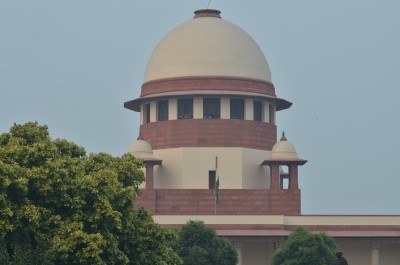
New Delhi, The Supreme Court on Friday expressed concern on the "casual" and "cursory" attitude adopted by trial courts while recording the statements of accused under Section 313 of the Code of Criminal Procedure (CrPC) in dowry death cases.
A bench of Chief Justice N.V. Ramana and Justice Aniruddha Bose said: "It is a matter of grave concern that, often, trial courts record the statement under Section 313, CrPC in a very casual and cursory manner, without specifically questioning the accused as to his defence."
Undoubtedly, the menace of dowry death is increasing day by day, it said, but also observed that sometimes, family members of the husband were roped in, even though they have no active role in commission of the offence and are residing at distant places. "In these cases, the court need to be cautious in its approach," the bench noted.
The court emphasised that it ought to be noted that the examination of an accused under Section 313 CrPC cannot be treated as a mere procedural formality, as it is based on the fundamental principle of fairness. "This aforesaid provision incorporates the valuable principle of natural justice 'audi alteram partem' as it enables the accused to offer an explanation for the incriminatory material appearing against him. Therefore, it imposes an obligation on the court to question the accused fairly, with care and caution," said the bench.
It observed that once trial court decides the accused is not eligible to be acquitted, it must move on and fix hearings specifically for 'defence evidence', calling upon the accused to present his defence as per the procedure, which is also an invaluable right provided to the accused.
"In the same breath, trial courts need to balance other important considerations such as the right to a speedy trial. In this regard, we may caution that the above provisions should not be allowed to be misused as delay tactics," the bench said. The prosecution must establish existence of "proximate and live link" between the dowry death and cruelty or harassment for dowry demand by the husband or his relatives, it added.
The top court convicted the accused in Section 304-B (dowry death) but set aside the Punjab and Haryana High Court convicting and sentencing the accused under Section 306 IPC (abetment of suicide). "We find that the High Court and the trial court have not committed any error in convicting the appellants under Section 304B, IPC as the appellants failed to discharge the burden under Section 113B, Evidence Act. However, upon appreciation of facts and circumstances we are of the opinion that the offence under Section 306, IPC is not made out," it said.


.jpeg)

